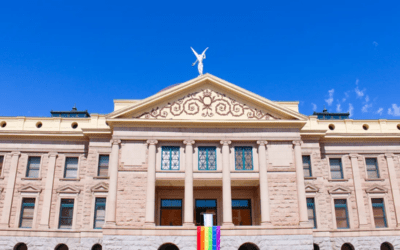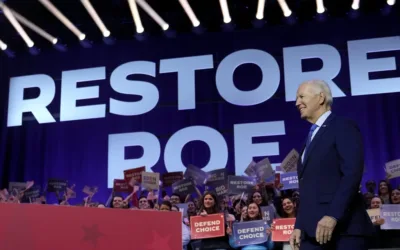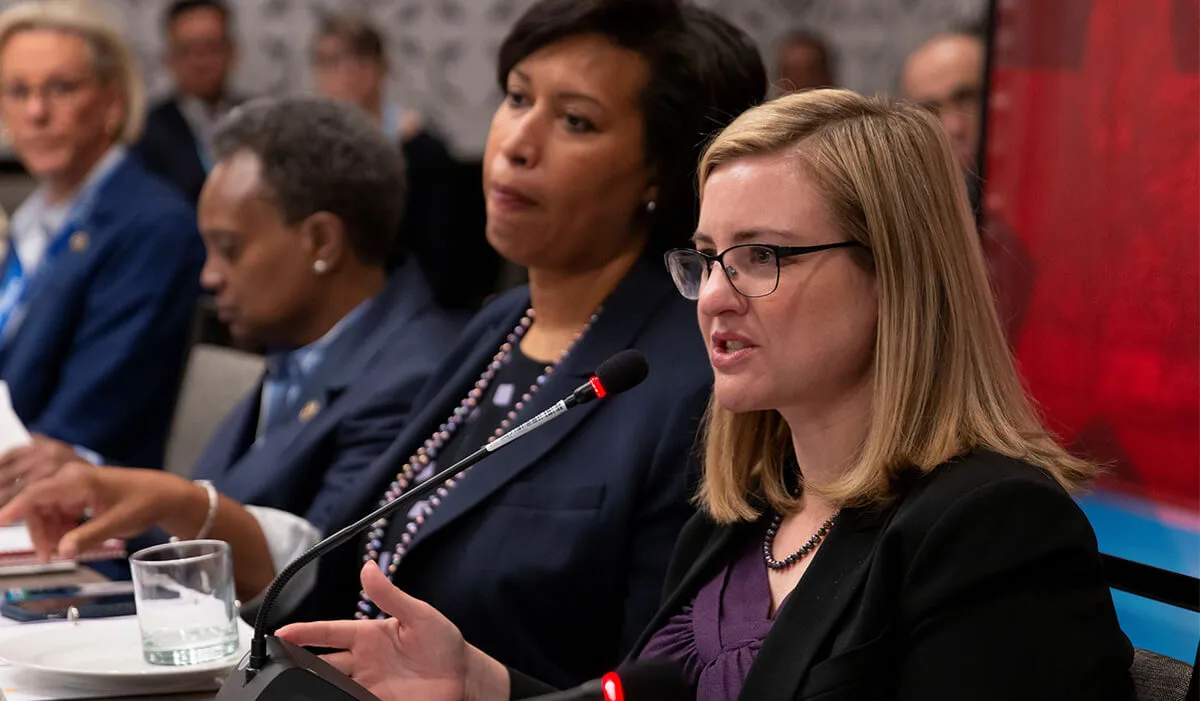
Photo by Christopher Scragg, Cronkite News.
“I have folks, the leaders of the business community reaching out to me and saying, ‘What can we do to fight racism?’ Those were conversations that we didn’t have as often as we needed.”
Cities were already grappling with the health and economic impact of COVID-19 when protests uncovered what one mayor Thursday called the “second pandemic” — a fractured police relationship with their communities.
The comments came in a virtual roundtable discussion with mayors from across the country, including Phoenix Mayor Kate Gallego, who were asked to talk about “national unrest amid COVID-19 pandemic.”
Gallego was joined by mayors of Atlanta, Stockton, California, and Newark, New Jersey, who split the hour-long conversation evenly between cops and the coronavirus. While the discussion was wide-ranging, the mayors agreed on one thing: It’s a challenging time.
RELATED: Small-Town Arizona Just Got the Help It Needed
“It has been quite a few two weeks in Phoenix, Arizona,” Gallego said during the event, which was sponsored by the Center for American Progress. “We have been having robust conversations with the police department and our community.”
Demands for change
Cities across the country were rocked in recent weeks by protests over George Floyd’s May 25 killing at the hands of Minneapolis police officers, one of whom knelt one Floyd’s neck for almost 9 minutes despite pleas that he could not breathe.
A number of those protests erupted into clashes with police, with some protesters taking up “defund the police” as a rallying cry.
“First, all the inequality was unearthed because of COVID and then, bam, George Floyd is murdered almost on national TV,” said Newark Mayor Ras Baraka. “This is not the first time a police officer killed a Black man.”
RELATED: This Is What It Means to Defund the Police
Atlanta Mayor Keisha Lance Bottoms said the reaction to Floyd’s death was not surprising.
“If we are over-policing our communities, then we are going to have a heightened response from our communities,” said Bottoms.
Taking steps
Floyd’s death and the ensuing protests have been a wake-up call for some, Gallego said. She pointed to the Phoenix Police Department’s decision Tuesday to prohibit the carotid control technique, an aggressive chokehold used to subdue suspects.
“Now I have folks, the leaders of the business community reaching out to me and saying, ‘What can we do to fight racism?’” Gallego said. “Those were conversations that we didn’t have as often as we needed to before.”
While Phoenix’s current mayor discussed the unrest brought on by the coronavirus pandemic and Floyd’s death, the city’s former mayor, Rep. Greg Stanton, D-Phoenix, listened to the testimony of Floyd’s brother, Philonise. Floyd told a somber House committee Wednesday that he hopes his testimony can bring changes so that his brother’s “death will not be in vain.”
RELATED: Record Number Of Phoenix Police Shootings Add Fuel To The Fire Of Protests
“People have come together to make change,” said Philonise Floyd, the lead witness in a daylong hearing by the House Judiciary Committee on police practices and accountability. The committee also heard testimony from the sister of a police officer who was shot and killed during an Oakland protest, as well as multiple civil rights advocates, lawyers and criminal justice experts.
While lawmakers agreed on the need for reform they disagreed on how to get there.
Justice in Policing Act
For Democrats the answer is the Justice in Policing Act of 2020, a sweeping reform bill introduced Monday that calls for the collection of data on police misconduct and use of force, requires police body cameras, creates a national registry of officers charged with brutality and weakens legal protections for officers.
The bill would also prohibit “no-knock” warrants in drug cases, encourage departments to ban the use of chokeholds, work to end profiling and fund training in de-escalation techniques.
“This is a charge that every level of government must take up – from those of us in Congress to everyone who serves on a city council,” Stanton said during the hearing. “I recognize that the ability to end racism in our country is beyond the reach of this committee,” he said. “But what we can do is address structural racism and enact tangible measures of transparency and accountability in policing that can help make everyone more safe.”
RELATED: Arizona Attorney General to Ducey: Do Something About Police Reform — Now
He pointed to his time as Phoenix mayor, when the city started a Community Police Trust Initiative.
“We enhanced de-escalation training for our officers. Rewrote the guidelines for interacting with the immigrant community. We started putting body-worn cameras on officers on patrol,” he said. “And then, when we saw the results, we budgeted for every officer on the beat to wear a camera.”
While the Democrats’ bill does not call for cuts in police funding, Republicans at the hearing latched on to protesters’ call to “defund the police.” Many were like Rep. Debbie Lesko, R-Peoria, who said that cutting police budgets would leave victims of crime unprotected.
“Who will protect victims, response time if police are disbanded?” asked Lesko. “I have two Black grandsons, so I haven’t experienced the discrimination that some of you have, but I sure don’t want them to be discriminated against.”
An epidemic
Ben Crump, an attorney representing the Floyd family, said the systemic racism that led to Floyd’s death needs to be attacked like it’s an epidemic on Black people.
Crump, pointing to a section of the Justice in Policing Act that would weaken officers’ qualified immunity from lawsuits, said that “immunity breeds impunity.” Lifting that immunity would let individuals to recover court damages when police violate their constitutional rights.
While Arzona lawmakers debate police reform in D.C., Gov. Doug Ducey defended his response to the coronavirus pandemic. He rejected calls to tighten restrictions on business and social interactions, even though the state has seen a sharp uptick in COVID-19 infections, hospitalizations and deaths in the last week.
“We opened too much too early.”
Ducey said Thursday the state had a sufficient number of hospital beds available, that testing is available and that the state would continue its phased reopening for now.
Gallego, who spoke before Ducey’s announcement, said that the state has rushed into reopening, which is why the situation is only getting worse in Arizona.
RELATED: Arizona Hospitals Convert Entire Floors Into COVID-19 Wards as Cases Surge
“These conversations happen as we recover from – well, we are not recovering from COVID-19.” she said. “We opened too much too early and so our hospitals are really struggling.”
While many worry that the protests might lead to further increases in COVID-19 infections, Gallego was careful to note research from Arizona State University that found the current increase in positive tests are not a result of the protests.
Gallego, who has been critical of Ducey’s response, said mayors have led the fight to rein in the virus in Arizona.
“There has been no playbook, at least that was left for me, on as mayor how you deal with a pandemic and certainly not one on how you deal with a transitional movement like we are seeing in this country,” she said.
READ ON: Ducey’s Handling of Coronavirus Data Considered Manipulative by Health Experts
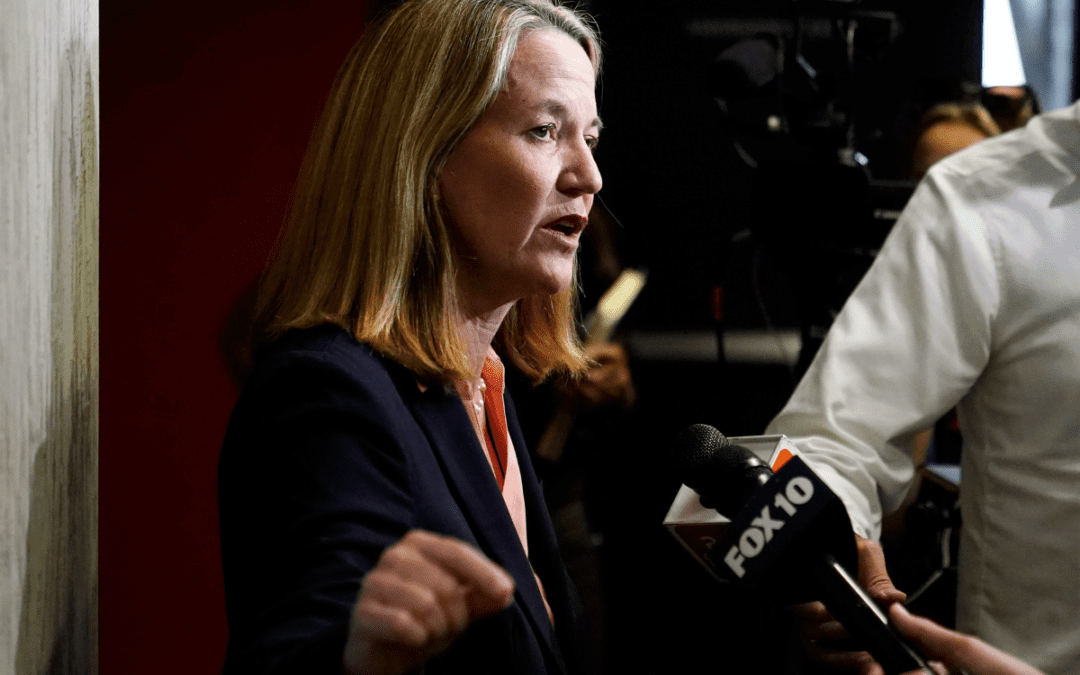
BREAKING: AG Kris Mayes sues rental corporations for conspiratorial price-fixing
It looks like, legally speaking, rent really may be “too damn high.” Arizona Attorney General Kris Mayes announced Wednesday a lawsuit against nine...
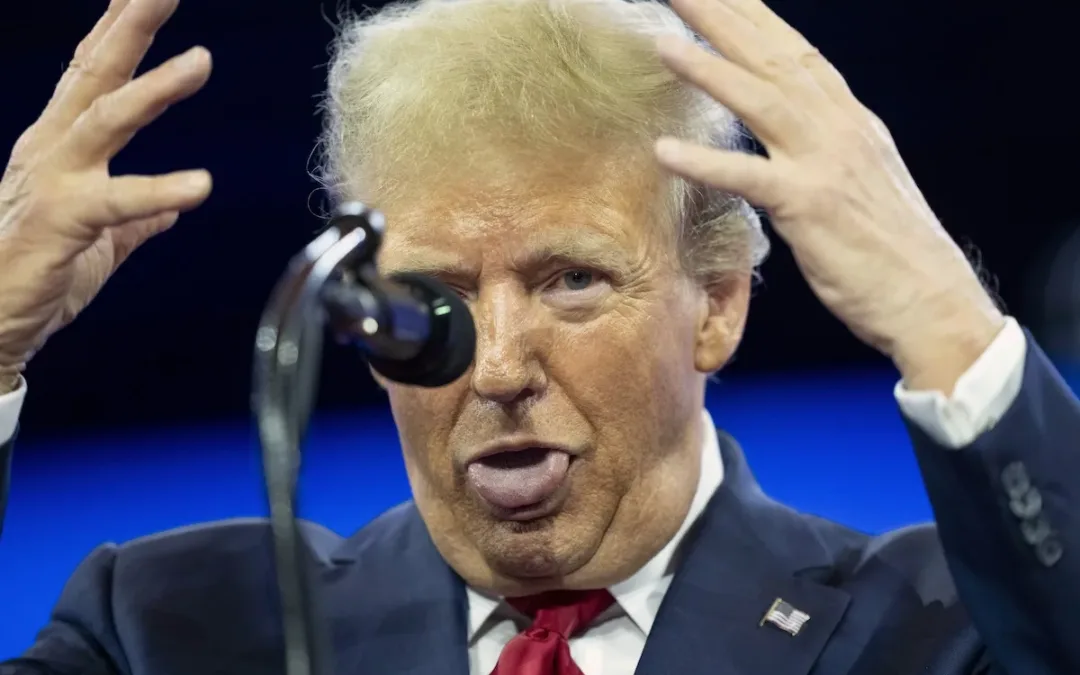
Op-ed: Trump’s journey from hosting The Apprentice to being the biggest loser
Leading up to the 2016 election, Donald Trump crafted an image of himself as a successful businessman and a winner. But in reality, Trump has a long...
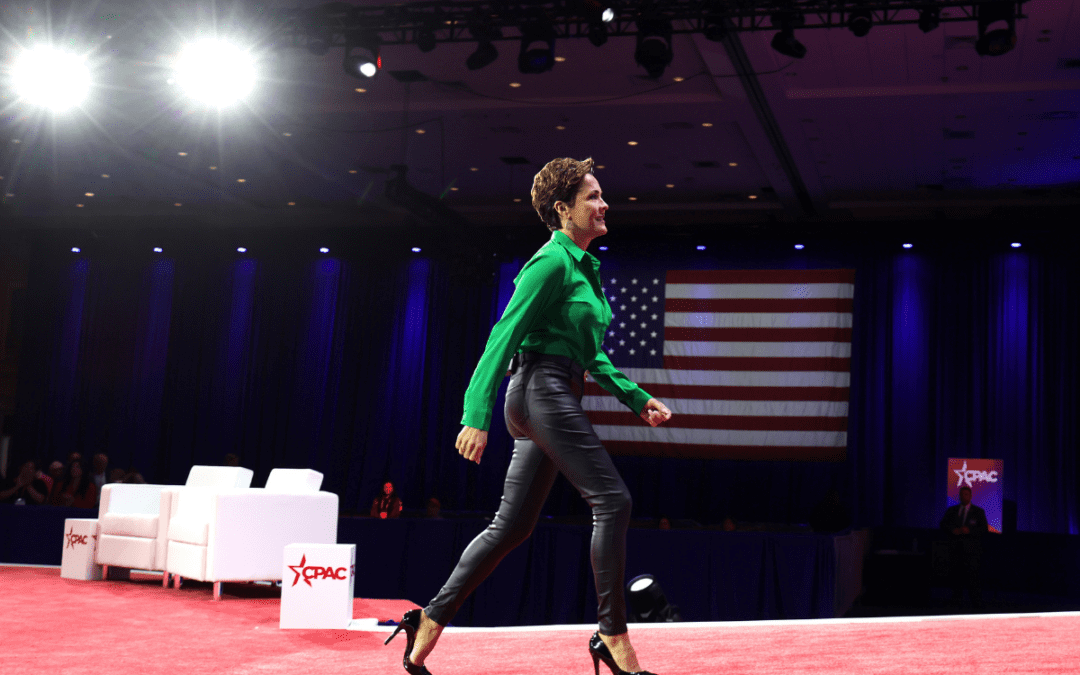
Kari Lake’s plan for the US Senate: ‘The end of democracy’
The world’s most far-right political leaders flocked to National Harbor, Maryland, last week for a conservative conference where attendants idolized...

Flight attendants picket at more than 30 airports in ‘unprecedented’ show of solidarity
Hundreds of flight attendants picketed at Phoenix Sky Harbor Airport last week, calling attention to stagnant wages with low purchasing power, poor...



